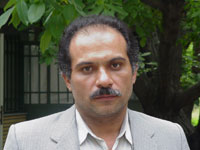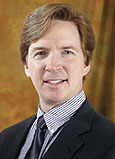
Ambassador Killion sits at the head of the table
Photo: Nicole Varchaver
Ambassador David Killion, together with Kelly Seikman (the Director of the UNESCO Affairs Office in the State Department) and Elizabeth Kanick (the Executive Director of the National Commission for UNESCO), met yesterday with members of the Board of Directors of Americans for UNESCO. They expressed great satisfaction with the visit of UNESCO Director General Irina Bokova to the United States. Director General Bokova met with both the Secretary of State and the Secretary of Education as well as with Congressional leaders during her visit, and all offered encouragement for her efforts to lead UNESCO and support for UNESCO's mission to promote peace, education, science and culture.
We were also informed that there will soon be recruitment of new staff members for both the UNESCO Affairs Office and the Delegation in Paris), and that efforts are under way to reconstitute the National Commission membership and plan for a meeting of the National Commission this year.
UNESCO is currently recruiting senior staff to fill out Director General Bokova's team, including a new Deputy Director General and seven Assistant Director Generals. The conversations this week were of course often concerned with Haiti, but also with efforts to improve education and especially girls education. 2010 is the
International Year of Rapprochement of Cultures, and of course UNESCO will play a key role in its observation.

Elizabeth Kanick to Killion's left and Kelly Seikman to his righ
Photo: Nicole Varchaver















